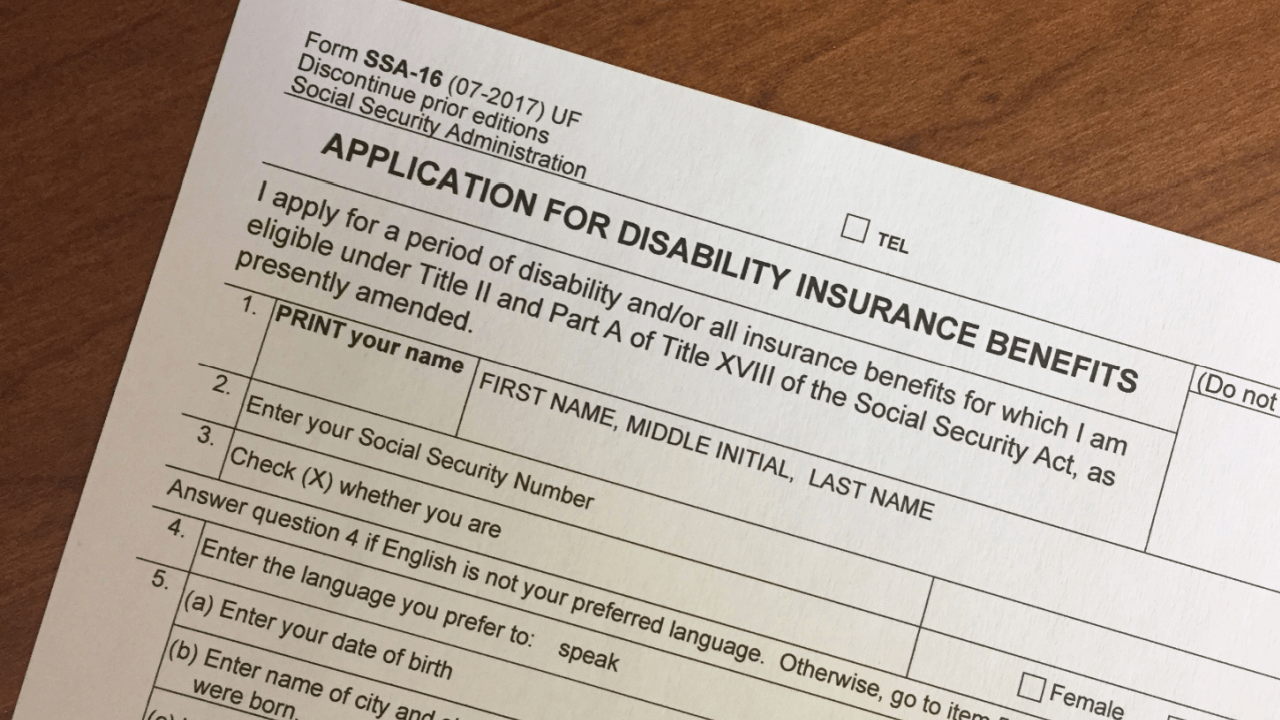
What Conditions Are Automatically Approved for Disability? Understanding Compassionate Allowances
What Conditions Are Automatically Approved for Disability?
When applying for Social Security Disability Insurance (SSDI), many individuals want to know: What conditions are automatically approved for disability? While no claim is truly automatic, the Social Security Administration (SSA) offers an expedited process known as the Compassionate Allowances Program (CAL) for certain severe medical conditions.
Compassionate Allowances are designed to quickly identify diseases and disorders that clearly meet SSA’s standards for disability. Instead of going through months of medical evidence reviews, applicants with CAL conditions may receive decisions more quickly when sufficient medical evidence is provided.
In this article, we’ll explain how the Compassionate Allowances system works, which conditions qualify, and how you can strengthen your claim to take full advantage of fast-track approval.
Qualifying Conditions: Top SSDI Approvals Under Compassionate Allowances
The SSA maintains an official list of Compassionate Allowances conditions. These illnesses are generally life-threatening, severely disabling, or expected to result in death. Here are some major categories:
Certain Cancers
Aggressive or late-stage cancers often qualify for Compassionate Allowances, including:
- Pancreatic cancer
- Glioblastoma (a type of brain cancer)
- Liver cancer
- Inflammatory breast cancer
- Small cell lung cancer
Stage IV cancers and cancers that are inoperable or recurrent are often considered under the Compassionate Allowances program when medical criteria are met.
Neurological Disorders
Severe progressive diseases of the nervous system frequently qualify, such as:
- Amyotrophic lateral sclerosis (ALS)
- Early-onset Alzheimer’s disease
- Creutzfeldt-Jakob disease
- Primary progressive aphasia
Rare Genetic and Childhood Disorders
Some genetic conditions and congenital disorders qualify for children and adults, including:
- Batten disease
- Tay-Sachs disease
- Hutchinson-Gilford progeria syndrome
Severe Respiratory Disorders
Advanced respiratory conditions like idiopathic pulmonary fibrosis and pulmonary atresia (in children) may also qualify.
Important Note:
SSA adds new conditions to the Compassionate Allowances list over time. It’s critical to check the latest version when applying, especially if you are facing a rare or newly recognized illness.
Application Tips: Strengthening Your Compassionate Allowance SSDI Claim
Even when you have a Compassionate Allowances condition, providing strong and immediate medical documentation is essential to trigger fast-track approval.
Submit Clear Medical Evidence Early
Provide pathology reports, imaging studies, specialist evaluations, and hospital records as soon as you file your application. This ensures SSA can confirm your diagnosis without delay.
Use the Correct Diagnosis Language
Ensure that your doctors clearly reference the specific disease name that matches SSA’s list. Minor wording differences could confuse SSA reviewers and delay your case.
Apply Online or Through a Lawyer Familiar With CAL Cases
Apply online using SSA’s Compassionate Allowances process or consider working with a disability attorney familiar with expedited claims to help ensure your case is reviewed appropriately.
Respond Quickly to SSA Requests
If SSA asks for additional evidence or clarification, respond immediately to avoid unnecessary delays.
What Conditions Are Automatically Approved for Disability? Final Thoughts
So, what conditions are automatically approved for disability? Severe, life-threatening illnesses such as certain cancers, advanced neurological diseases, and rare genetic disorders may be reviewed more quickly through SSA’s Compassionate Allowances Program when eligibility requirements are met.
While this program speeds up the decision process, success still depends on submitting strong medical evidence that clearly confirms your diagnosis.
If you believe you may qualify for expedited review, working with professionals who understand how to present medical documentation accurately may help the process move more efficiently.
Get Help Understanding the Disability Application Process
Navigating the SSDI process with a severe medical condition shouldn’t be harder than it needs to be. Social Security Disability, powered by Legal Brand Marketing, connects you with experienced disability lawyers who understand how to:
- File Compassionate Allowance cases correctly
- Provide the exact documentation SSA needs
- Help navigate the application and review process efficiently
If you’re ready to get started, contact us today, and we can connect you with an SSDI attorney familiar with the application and review process.
Frequently Asked Questions (FAQs)
1. What is the Compassionate Allowances Program?
It’s an SSA initiative that fast-tracks SSDI approvals for applicants with severe, well-documented medical conditions that clearly meet disability standards.
2. How fast can I get approved with a Compassionate Allowance?
Many CAL claims are approved within a few weeks, much faster than the usual 3–5 month wait for standard SSDI applications.
3. Does a Compassionate Allowances condition guarantee approval?
While it improves your odds significantly, you must still submit proper medical documentation to confirm the diagnosis.
4. Can mental health conditions qualify for Compassionate Allowances?
Currently, only certain neurological conditions qualify. Common mental health disorders like depression or anxiety do not qualify for automatic fast-tracking.
5. Should I still hire a lawyer if I have a Compassionate Allowance condition?
Yes. Lawyers help ensure your application is correctly flagged, fully supported by evidence, and processed as quickly as possible.
Key Takeaways
- Compassionate Allowances fast-tracks SSDI approvals for serious conditions.
- Aggressive cancers, ALS, and rare genetic disorders commonly qualify.
- Strong, immediate medical documentation is critical for fast approval.
- Legal support improves your chances of faster benefits without mistakes.
- Legal Brand Marketing connects you with disability lawyers experienced in expedited SSDI claims.


